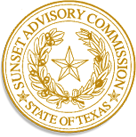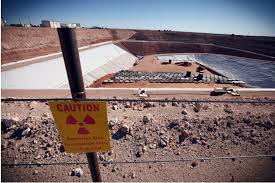
Monday, August 22, 2016
House Appropriations Committee Room
Room E1.030, Capitol Extension
1400 Congress Avenue
Starting at 9:00 a.m.
This is not the Railroad Commission’s first rodeo. It was punted in the 2011, 2013 and 2015 legislative sessions with a temporary re-authorization because the legislature failed to agree and pass a bill that would reauthorize the agency for another 12 years. So once again this dysfunctional agency is in front of the Sunset Commissioners who must make recommendations about how the RRC should continue (and in case you were wondering – NO – the Railroad Commission does not regulate railroads. Pipelines, oil and gas wells, and mines are among the things it oversees/rubber stamps. And it does have some enforcement duties that don’t amount to much So this is an agency that could use some serious changes, but unless the Texas legislature via the Sunset Commissioners know that the public is paying attention to what they do, they could just re-authorize the RRC for another 12 years with no significant changes. This is where you come in. Below is a description of the Sunset Advisory Commission and their process. You can see the agenda for the August 22nd hearing here.
If you plan to testify, you will need to fill out a witness card upon your arrival at the Capitol in Room E1.030. We will have our internal sessions and refreshments in reserved rooms at the Capitol. Parking is available in the Capitol Visitors Garage accessible on 12th or 13th Streets between Trinity and San Jacinto on the east side of the Capitol., please fill in the sheet here, so we can plan to accommodate everyone and for you to get information about the rooms we have reserved. If you cannot come in person, there are other options (see below)
The Sunset Advisory Commission is an agency of the Texas Legislature that makes recommendations to the Legislature on whether to continue various state agencies.
The Commission was created in 1977 under the auspices of the Texas Sunset Act (now codified as Chapter 325 of the Texas Government Code).
The Commission consists of twelve members, ten of whom are legislators and the remaining two are members of the general public (see the current Commissioners below). The leader of each chamber of the Legislature (the Speaker of the Texas House of Representatives and the Lieutenant Governor of Texas, who presides over the Texas Senate) each appoint five legislators and one public member to serve on the Commission. The chair and vice-chair rotate annually between the two chambers. The Commission appoints a director, who hires staff to carry out agency duties. (A list of the members is located at the bottom of this post)
Under the Act, every state agency (excluding universities, courts, and agencies mandated under the Texas Constitution) has a specific date on which it will automatically be abolished, unless the Legislature passes specific legislation continuing the agency’s existence. This issue came into play during the 2009 Legislative session, when the session adjourned without the Legislature providing for the continued existence of several agencies, thus requiring the Governor to call a special session.
Prior to the scheduled cessation date of an agency, the agency’s functions are scheduled for review by the Commission. Each agency provides to the Commission a Self-Evaluation Report; the Commission staff prepares its recommendations (coordinating with other state oversight agencies, such as the State Auditor’s Office and the Legislative Budget Board) and takes public comments. A final public hearing is held prior to the Commission making its final recommendations to the Legislature. The final recommendation can be any of the following:
- Continue the agency as is
- Continue the agency with modifications (including moving functions from the agency to other agencies, moving functions from other agencies into it, and most commonly, making improvements to the effectiveness and efficiency of an agency’s functions.)
- Merge the agency with another agency
- Disband the agency and either transfer its functions to other agencies, or abolish them altogether
If the Commission recommends continuation of the agency, it must provide draft legislation to continue the Agency and to make other recommendations. Generally, the legislation will allow the agency to continue for an additional 12 years (six biennial sessions), but may be shortened in order to equalize the number and size of agencies to be reviewed each biennium. Should an agency be abolished, the Act provides for a one-year wind-down period so the agency may conclude its operations. The Legislature must pass specific legislation to continue an agency’s existence and to define its roles and responsibilities, and has complete freedom to amend or reject the Commission’s recommendations (either to continue or abolish the agency).
The Sunset Process:
The Commission generally considers each agency under review during two public meetings. About a month after release of a Sunset staff report, the Commission discusses the report’s recommendations and takes testimony from the public. Any person is welcome to attend the public hearing and provide feedback on the staff recommendations or other issues relating to the agency. For the Railroad Commission this hearing is August 22, 2016 at the capital. Please note, however, testimony about individual cases or appeals is generally not allowed. The Sunset Commission cannot override an agency’s decisions.
At least a month after the public hearing, the Sunset Commission meets again to vote on its recommendations to the full Legislature about an agency. No additional public testimony is taken at this second meeting. The Railroad Commission’s second meeting is scheduled for November 10th. At this point the commissioners will issue their recommendations for any changes at the agency that will be considered in the reauthorizing legislation that needs to pass during the 85th legislative session, should the bill fail the agency is abolished but may continue business for up to one year. Should no reauthorizing legislation pass, there is an omnibus bill that will allow an agency to undergo the sunset process during the next interim session, but the Railroad Commission’s reauthorizing process was already delayed last session.
Public participation is the cornerstone of the Sunset process. It is how Sunset staff gains the broad perspective needed to conduct its review of state agencies and programs. It is how the Sunset Commission receives feedback about the Sunset staff review and hears new ideas and issues beyond what staff has presented. Ultimately, it is how the public itself can be assured of a say on fundamental matters affecting state agencies.
The public may participate in the Sunset process at this point by:
Giving feedback directly to the Sunset Commission.
After the Sunset staff report has been issued, the Sunset Commission conducts a public hearing to receive feedback on the staff’s work. Interested persons may provide feedback in writing or by testifying at the hearing. Because of the public nature of the proceeding, feedback received at this stage is public and will generally be placed on the Sunset Commission’s website for the public to see. To be most effective, this feedback should be short and to the point and clearly indicate support, opposition, or changes to recommendations. One may also present any new issues or solutions that were not raised in the Sunset staff report. Sunset staff compiles this feedback to help the Sunset Commission make decisions about an agency.
If you cannot attend but want to submit written testimony, you can use the Public Input Form and watch a live stream of the hearing. or you can go to Public Citizen’s Action form with pre-written testimony. Once you take action here you will both automatically receive an email about the hearing and will be directed to the page to sign up to attend the hearing
If the reason you cannot attend is because they happened to schedule this hearing on the same day school starts in your area, be sure to mention this in your written testimony.
Sunset Commission Members
The Commission has five Senators, five Representatives, and two members of the public, appointed by the Lieutenant Governor and the Speaker of the House. The position of chair rotates between the House and the Senate every two years.
Read Full Post »





